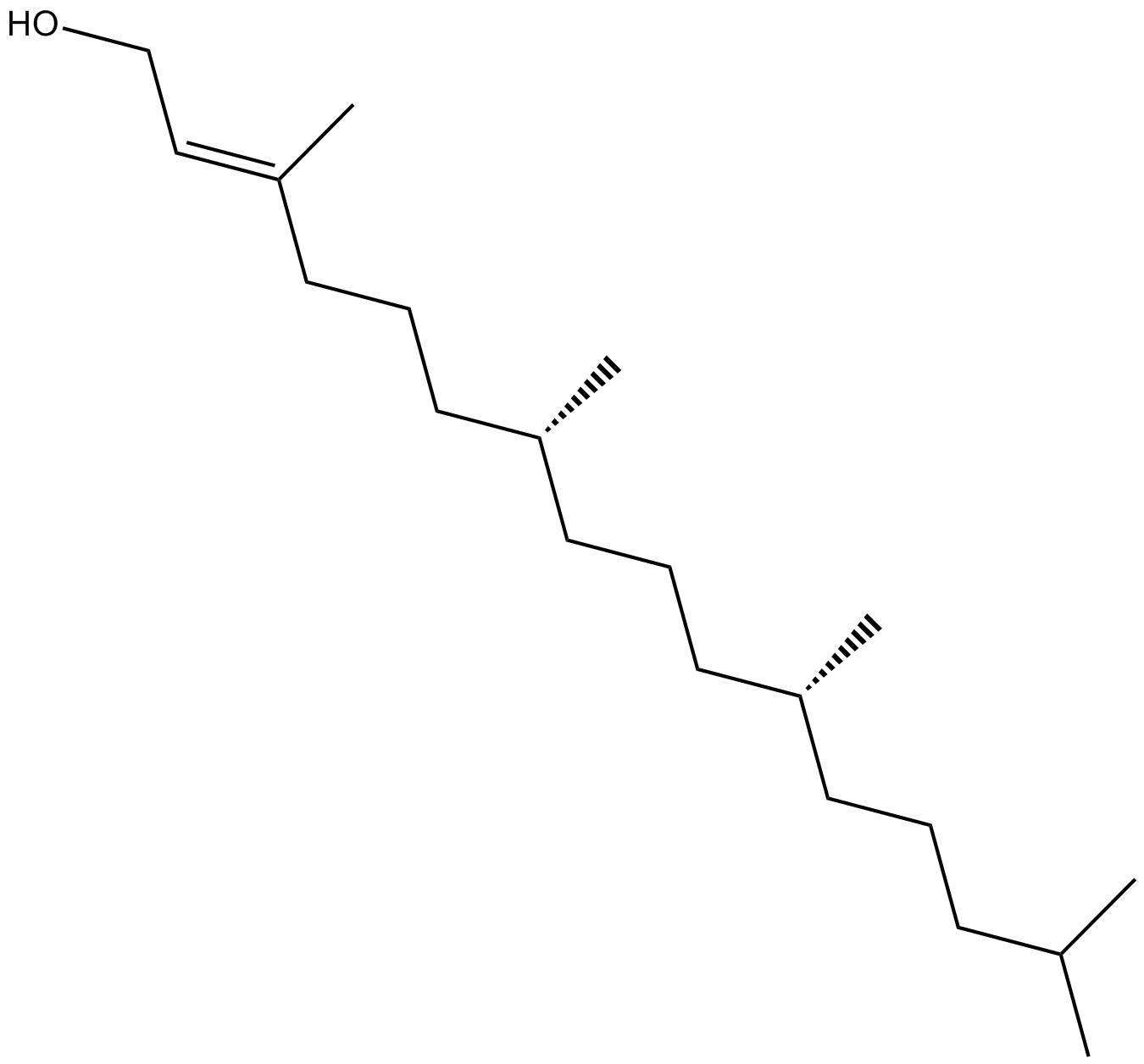Phytol (Synonyms: trans-Phytol) |
| Katalog-Nr.GC17433 |
Phytol ((E)-Phytol), ein Diterpenalkohol aus Chlorophyll, der als Lebensmittelzusatzstoff und in der Medizin weit verbreitet ist, besitzt vielversprechende antischistosomale Eigenschaften.
Products are for research use only. Not for human use. We do not sell to patients.

Cas No.: 150-86-7
Sample solution is provided at 25 µL, 10mM.
Phytol is an activator of retinoid X receptors (RXRs) [1,2].
The retinoid X receptors (RXRs) are nuclear receptors activated by 9-cis retinoic acid. RXRs are members of the steroid/thyroid hormone receptor superfamily of DNA binding nuclear hormone receptors. The RXRs are cofactors required for transcription activated by some other members of the steroid/thyroid hormone receptor superfamily, including the all-truns retinoic acid, vitamin D, thyroid hormone, and peroxisome proliferator-activated receptors. Some RXR null mutations in mice show phenotypic effects similar to vitamin A deficiency. Retinoids, metabolites of vitamin A, act as signalling molecules in embryogenesis and as stimulators of cellular differentiation. The retinoids has been successfully used in treating skin diseases and some forms of cancer [3].
Phytol activated retinoid X receptors (RXRs) with the Ki range from 2.3 to 67.2 μM [2]. Phytol was a diterpene alcohol obtained from the degradation of chlorophyll. Phytol has been used in the synthesis of Vitamins E and K. During the digestion process of ruminants, phytol converted to phytanic acid [2]. Phytol was readily absorbed in the small intestine and converted to phytanic acid in human. In a number of metabolic disorders, Phytanic acid accumulated to toxic levels[2]. The conversion of phytol to phytanic acid was regulated via the activation of peroxisome proliferator-activated receptor α (PPARα). Phytol showed sedative and anxiolytic effects through interaction with the GABAA receptor, and it was explored as an antischistosomal agent in a mouse model of schistosomiasis [4].
References:
[1] Kitareewan S, Burka L T, Tomer K B, et al. Phytol metabolites are circulating dietary factors that activate the nuclear receptor RXR[J]. Molecular Biology of the Cell, 1996, 7(8): 1153-1166.
[2] Gloerich J, van den Brink D M, Ruiter J P N, et al. Metabolism of phytol to phytanic acid in the mouse, and the role of PPARα in its regulation[J]. Journal of lipid research, 2007, 48(1): 77-85.
[3] Rowe A. Retinoid X receptors[J]. The international journal of biochemistry & cell biology, 1997, 29(2): 275-278.
[4] Costa J P, de Oliveira G A L, de Almeida A A C, et al. Anxiolytic-like effects of phytol: possible involvement of GABAergic transmission[J]. Brain research, 2014, 1547: 34-42.
Average Rating: 5 (Based on Reviews and 34 reference(s) in Google Scholar.)
GLPBIO products are for RESEARCH USE ONLY. Please make sure your review or question is research based.
Required fields are marked with *




















